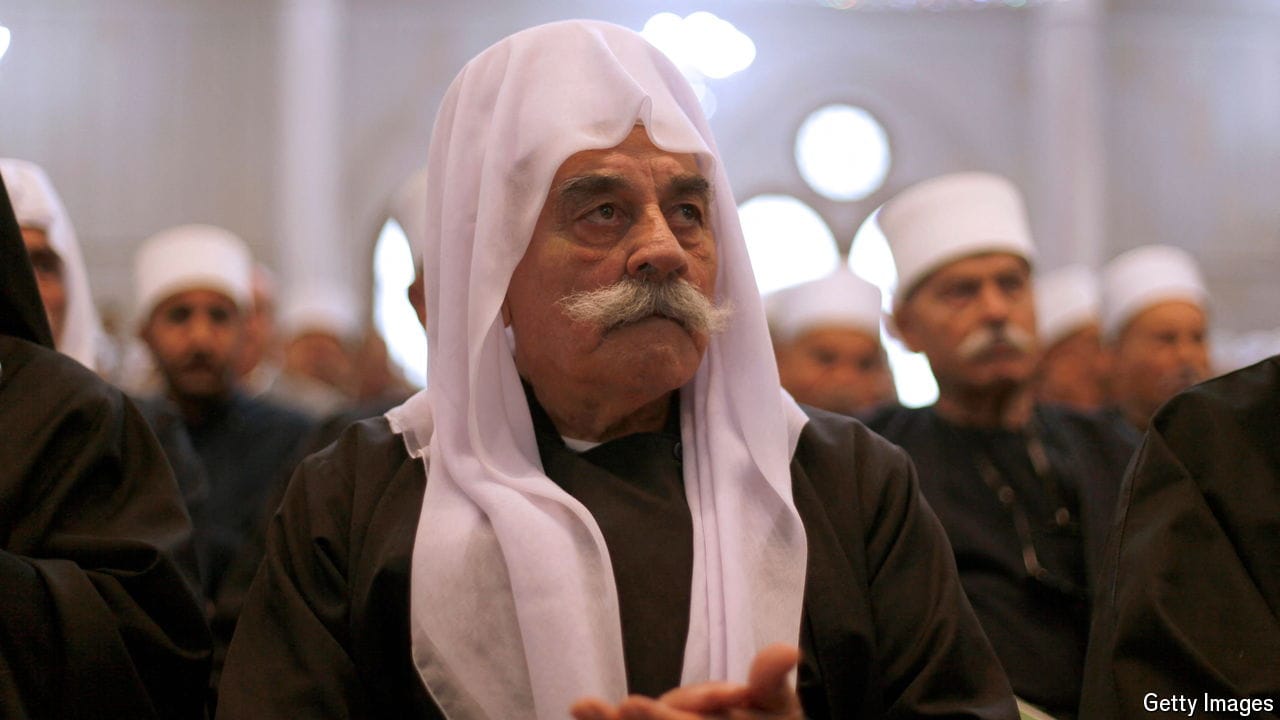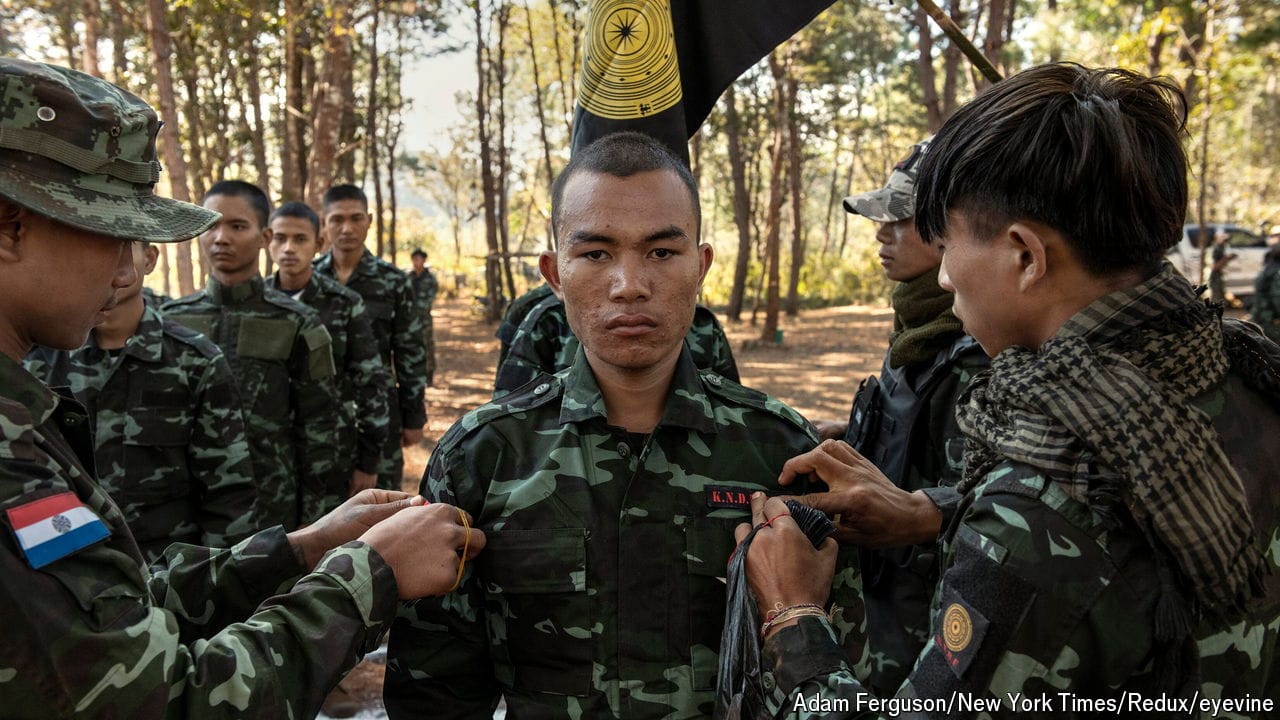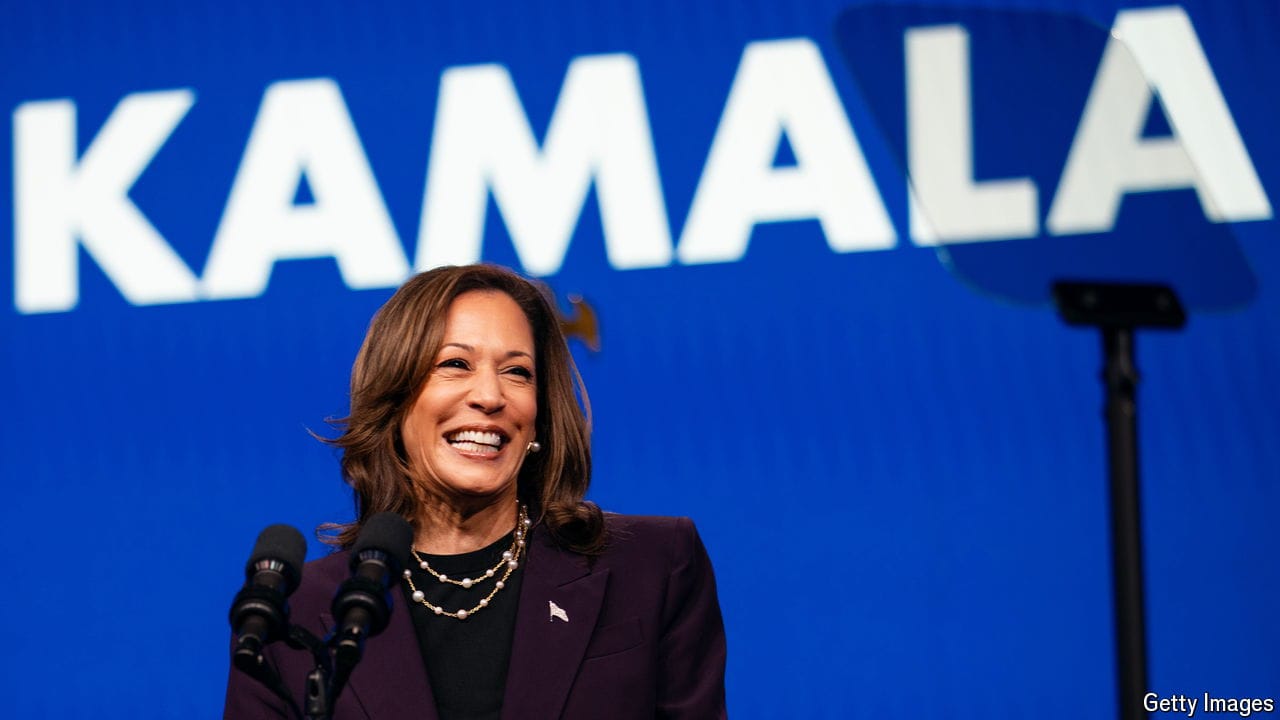What is the Wagner Group, Russia’s mercenary organisation?
Supposedly active in Ukraine, it has been accused of human-rights abuses and has ties to the Kremlin

RUSSIA MASSED around 190,000 troops on Ukraine’s border before it invaded. But there may be other, more shadowy Russian forces fighting there. According to a report in the Times on February 28th, more than 400 mercenaries belonging to Russia’s Wagner Group have been sent to Kyiv to assassinate Volodymyr Zelensky, Ukraine’s president. American officials say they have seen some indication of Wagner’s involvement in the war. Those reports have not been confirmed, but Wagner’s presence would not be a surprise. For years Ukraine has accused the private military organisation, which appears to have close ties to the Kremlin, of fighting in Luhansk and Donetsk, the disputed parts of eastern Ukraine. The mercenaries, who have also reportedly fought in both northern and sub-Saharan Africa, have been accused of torture, rape and extrajudicial killings. What is the Wagner Group, and how is it linked to the Russian state?
“From a legal perspective, Wagner doesn’t exist,” says Sorcha MacLeod, who heads the UN’s working group on the use of mercenaries. Instead of a single entity, Wagner is a network of companies and groups. According to a European Union regulation last December, implementing sanctions against the group and certain people, it was founded by Dmitry Utkin, a former Russian soldier adorned with Nazi tattoos. It was reportedly named after Hitler’s favourite composer. In December 2016 Mr Utkin was photographed alongside Vladimir Putin, Russia’s president, at a Kremlin event, hinting at the group’s powerful ties. Wagner is thought to be funded by Yevgeny Prigozhin, a businessman who is also alleged to run the Internet Research Agency, Russia’s “troll farm”. The Russian armed forces work closely with the group, reportedly providing it with munitions and transport aircraft. The head of Ukraine’s security services has likened Wagner to “a private army of Putin”.
More from The Economist explains

Who are the Druze, the victims of a deadly strike on Israel?
The religious minority has often been caught up in regional crossfire in the Middle East

Myanmar’s rapidly changing civil war, in maps and charts
Ethnic militias and pro-democracy groups are scoring victories against the governing junta

Who will be Kamala Harris’s running-mate?
She is reportedly vetting a dozen options. These are the top three
Why have so few American presidents been from the West?
Kamala Harris’s nomination would be a milestone for the region
Why the Olympics still has a doping problem
Cheating with drugs has again become an organised affair
Why some Russian athletes will be eligible to compete at the Paris Olympics
Despite antipathy between the Russian government and the International Olympic Committee a handful will compete